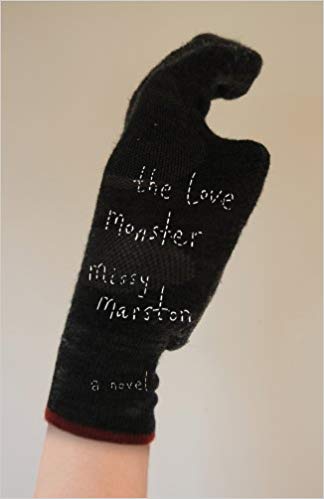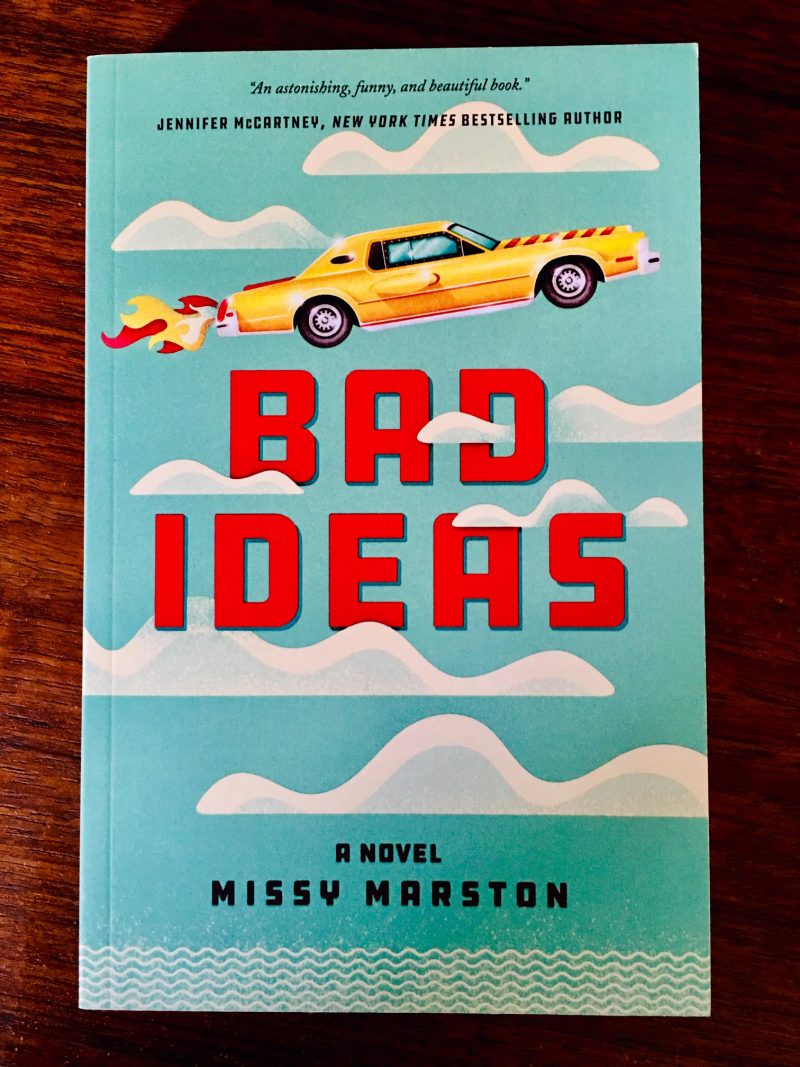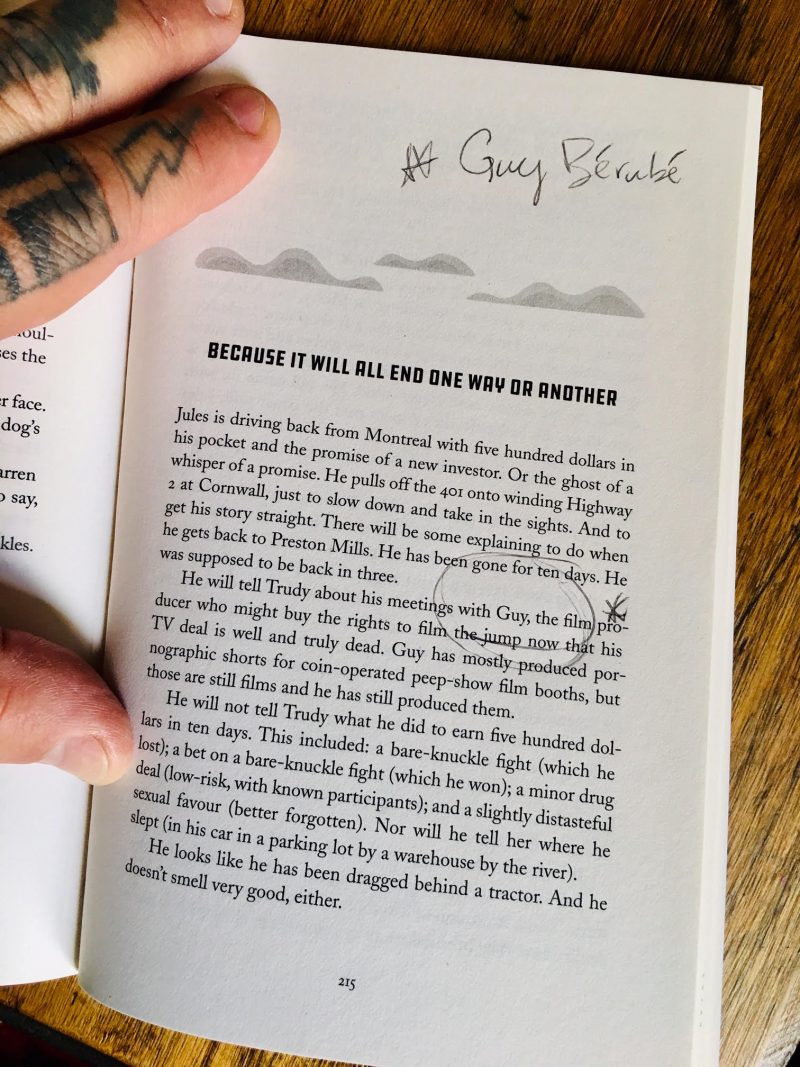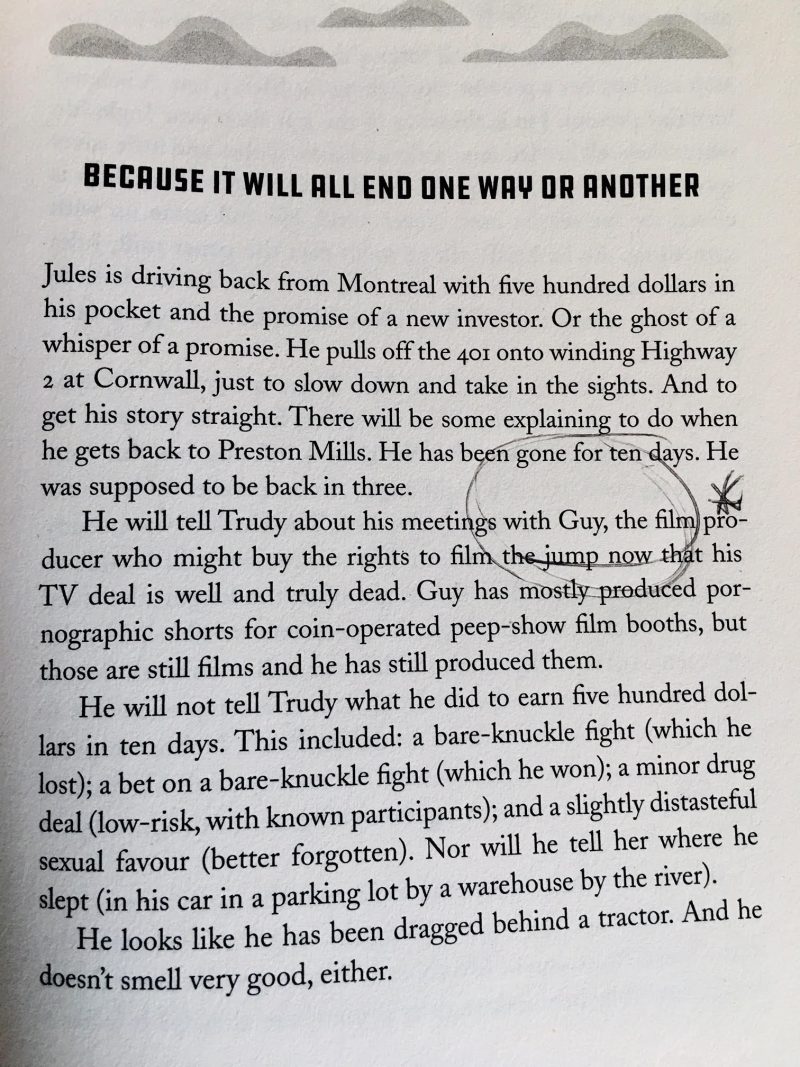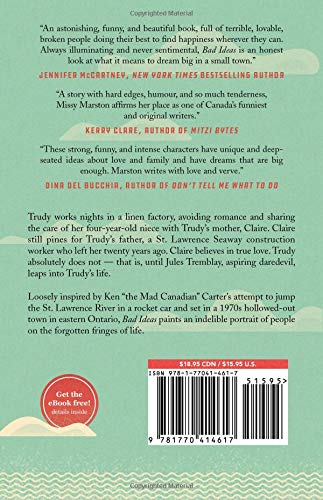‘Bad Ideas’ by Missy Marston-Shmelzer
““““““““““““““““““““““““““““““`
I believed having a 1000 lovers would immortilize me for all time, but I’ve recently discovered that Missy Marston-Shmelzer‘s new novel has a fictional character ‘somehwat’ based on me.
The tile is spot on.
‘BAD IDEAS’ by Missy Marston-Shmelzer.
(handwritten notes by Missy, when I didn’t believe her. xx)
Order this gem & her other book entitled “The Love Monster”
‘The Love Monster’ is the tall tale of one woman’s struggle with mid-life issues & a love-sick alien speaking in the voice of Donald Sutherland.
https://www.chapters.indigo.ca/…/cont…/author/missy-marston
“““““““““““““““““““““““““““““““
Missy Marston‘s first novel, The Love Monster, was the winner of the 2013 Ottawa Book Award, a finalist for the CBC Bookie Awards and the Scotiabank Giller Prize Readers’ Choice. She lives in Ottawa, Ontario.
“““““““““““““““““““““““““““““““
Wildly funny and wonderfully moving, Bad Ideas is about just that ― a string of bad ideas ― and the absurdity of love
“Trudy works nights in a linen factory, avoiding romance and sharing the care of her four-year-old niece with Trudy’s mother, Claire. Claire still pines for Trudy’s father, a St. Lawrence Seaway construction worker who left her twenty years ago. Claire believes in true love. Trudy does not. She’s keeping herself to herself. But when Jules Tremblay, aspiring daredevil, walks into the Jubilee restaurant, Trudy’s a goner.
Loosely inspired by Ken “the Crazy Canuck” Carter’s attempt to jump the St. Lawrence River in a rocket car, and set in a 1970s hollowed-out town in eastern Ontario, Bad Ideas paints an indelible portrait of people on the forgotten fringes of life. Witty and wise, this is a novel that will stay with you a long time”. – Amazon
““““““““““““““““““““““““““““““`
Editorial Reviews
Review
“This novel of working class women and the men they let into their lives is like a small town: both tough and soft. These strong, funny, and intense characters have unique and deep-seated ideas about love and family, have dreams that are big enough. Marston writes with love and verve. In Bad Ideas people take life as it comes, and think those bad ideas are probably going to play out just fine.” ― Dina Del Bucchia, author of Don’t Tell Me What to Do
“I’d follow Missy Marston’s writing anywhere, even off an ill-conceived launch ramp across the St. Lawrence River in a rocket-car. In Bad Ideas, she tells a story with hard edges, humour, and so much tenderness, affirming her place as one of Canada’s funniest and original writers.” ― Kerry Clare, author of Mitzi Bytes
“An astonishing, funny, and beautiful book. It’s full of terrible, lovable, broken people doing their best to find happiness wherever they can ― in fast cars, booze, or in the arms of the right-but-wrong person. It’s about the parts of ourselves that remain underwater in the murk and the bits we choose to showcase. It’s about what it means to love the wrong people ― the broke stunt driver, the married man, the absent mother. Always illuminating and never sentimental, Bad Ideas is an honest look at what it means to dream big in a small town. Oh, and there’s a surprise ending that’s absolutely glorious.” ― New York Times bestselling author Jennifer McCartney
“An unusual story of both familial and romantic love, the strange dreams humans have, and the cost and benefits of loyalty.” ― Kirkus Reviews
““““““““““““““““““““““““““““““
From the Back Cover
“An astonishing, funny, and beautiful book, full of terrible, lovable, broken people doing their best to find happiness wherever they can. Always illuminating and never sentimental, Bad Ideas is an honest look at what it means to dream big in a small town.” ― Jennifer McCartney, New York Times bestselling author
“A story with hard edges, humour, and so much tenderness, Missy Marston affirms her place as one of Canada’s funniest and original writers.” ― Kerry Clare, author of Mitzi Bytes
“These strong, funny, and intense characters have unique and deep-seated ideas about love and family and have dreams that are big enough. Marston writes with love and verve.” ― Dina Del Bucchia, author of Don’t Tell Me What to Do
Trudy works nights in a linen factory, avoiding romance and sharing the care of her four-year-old niece with Trudy’s mother, Claire. Claire still pines for Trudy’s father, a St. Lawrence Seaway construction worker who left her twenty years ago. Claire believes in true love. Trudy absolutely does not ― that is, until Jules Tremblay, aspiring daredevil, leaps into Trudy’s life.
Loosely inspired by Ken “the Mad Canadian” Carter’s attempt to jump the St. Lawrence River in a rocket car and set in a 1970s hollowed-out town in eastern Ontario, Bad Ideas paints an indelible portrait of people on the forgotten fringes of life.
“““““““““““““““““““““““““““““`
About the Author
Missy Marston’s first novel, The Love Monster, was the winner of the 2013 Ottawa Book Award, a finalist for the CBC Bookie Awards and the Scotiabank Giller Prize Readers’ Choice. She lives in Ottawa, Ontario.
““““““““““““““““““““
Why do they do it?
Why do they do it? What makes them drive their fists through walls, through windows, into each other’s faces? What makes them press the burning ends of cigarettes into the backs of their hands while staring into each other’s eyes? Why do they ride wild horses, bucking bulls, motorcycles, whatever crazy, dangerous, stupid thing they can climb onto? And when they are thrown, trampled, broken to pieces, what in God’s name makes them get back on?
What makes a man imagine that he can drive a car up a ramp and fly over bales of hay, buses, creeks, canyons and forget that he will break his ankles, his ribs, puncture his lungs, bounce his brain off the inside of his cranium when he lands. If he is lucky. If his sorry life is spared one more time.
And why are these the ones? The ones making noise, wasting space. The ones that are covered in scars, that should be dead. The ones with less than half a brain inside their heads. Why are these the only ones she ever loves?
And here comes another one, sad story and all. His jeans riding so low, his T-shirt so thin, his eyes so dark. Jesus Christ. She’s a goner.
Again.
““““““““““““““““““““““““““““““
Because the air became water
That first spring evening seemed like a long time ago now. A lot can happen in seven months. A lot can fall apart. Trudy would say that it was like a scene in a movie except no movie she had ever seen was set anywhere that looked anything like Preston Mills, Ontario. Scrubby shit-town clinging to the bank of the cold grey St. Lawrence River.
Eight hundred inhabitants, one grocery store, one gas station, one corner store called Smitty’s where you could fill tiny paper bags with stale penny candy. Swedish berries, toffee nuggets, black balls, licorice nibs.
One pool hall no female would dare to enter and that hollering, fighting men tumbled out of at hourly intervals each evening.
Six churches, one of them Catholic, one evangelical – complete with snake-handlers and speakers of tongues – and four barely distinguishable flavours of Protestantism: Presbyterian, United, Lutheran, Anglican.
A mile east of town, one massive set of locks that hugetankers eased into, then were slowly lowered and released to continue along the river to the ocean.
And there was a mill, WestMark Linen Mill, that employed Trudy and her mother, Claire, as well as most of the other working adults in the town.
There must have been other mills at some point, at least one other, to justify the town’s name. Maybe a long time ago, when it was Preston Mills, the first. Because this was Preston Mills, the second. Preston Mills, the ugly.
In the 1950s the town had been taken apart and reassembled between the river and the railroad tracks when the Seaway had gone through. Highway H2O, they called it. The way of the future. Higgledy-piggledy little Preston Mills – with its winding streets and courtyards, its barns and chicken coops and crooked lanes, its docks and boathouses and pebble beaches, was taken apart and put together again in straight lines. Houses jacked up, wrenched from their foundations, lifted onto trailers behind trucks, dragged back from the water and deposited on dirt lots along a grid of new streets. Schools and churches were taken down brick by brick and built again. The scar of the old town was still there, at the bottom of the river: the streets, the sidewalks, the rectangular concrete foundations, the fence posts. A map-like outline of the whole town imprinted on the riverbed. And every day giant ships passed overhead, casting shadows over the sunken town like long, black clouds.
Graveyards were moved, too. Coffins dug up and tombstones moved to flat, treeless fields. People worried that the workers had lost track, that the bodies no longer matched the names on the stones. But how would they ever know? They wouldn’t. The empty graves were flooded along with everything else. Slowly erased by silt and stones and shells and waving fields of seaweed.
(There were still bodies under there, though. Everyone knew it. For some graves, living relatives could not be found. Or there were people who were too squeamish or too superstitious to have their loved ones disturbed. Slabs of stone were placed over the graves to ensure the coffins didn’t float up to the surface after the flood. A sad fleet of haunted little boats bobbing around here and there on the surface. Not good, thought Trudy. That would not have been good at all.)
A new, arrow-straight highway bordered Preston Mills to the north. The old highway was under water about a hundred feet from the shore. In a couple of places, it rose out of the water and dipped back in, like the humps of the Loch Ness monster. Enough grass had broken through the asphalt and grown weedy-high that the hills looked like small islands. But if you swam out to one, you could see it was a road. There was a faded yellow line down the centre and you could walk along until the road sloped back down under water. In some places you could walk for half a mile before you lost your footing and started floating above the road.
That was how Trudy had felt when she first saw him: like the ground was suddenly dropping away beneath her feet, like the air had become water and she was floating up toward the bright blue sky.
““““““““““““““““““““““““““““““
Other Books by the author:
The Love Monster is the tall tale of one woman’s struggle with mid-life issues. The main character, Margaret H. Atwood, has psoriasis, a boring job and a bad attitude. Her cheating husband has left her. And none of her pants fit any more.
Marston takes the reader on a hilarious journey of recovery. Hope comes in the form of a dope-smoking senior citizen, a religious fanatic, a good lawyer and a talking turtle (not to mention Christo and Jeanne-Claude, Warren Zevon, Neil Armstrong and a yogi buried deep underground). And, of course, hope comes in the form of a love-sick alien speaking in the voice of Donald Sutherland.
More than an irreverent joyride, The Love Monster is also a sweet and tender look at the pain and indignity of being an adult human and a sincere exploration of the very few available remedies: art, love, religion, relentless optimism, and alien intervention.
““““““““““““““““““““““““““““`
PRESS:
“““““““““““““““““““““““““““““
Order Books Here:
https://www.amazon.ca/s?i=stripbooks&rh=p_27%3AMissy+Marston&ref=dp_byline_sr_book_1

